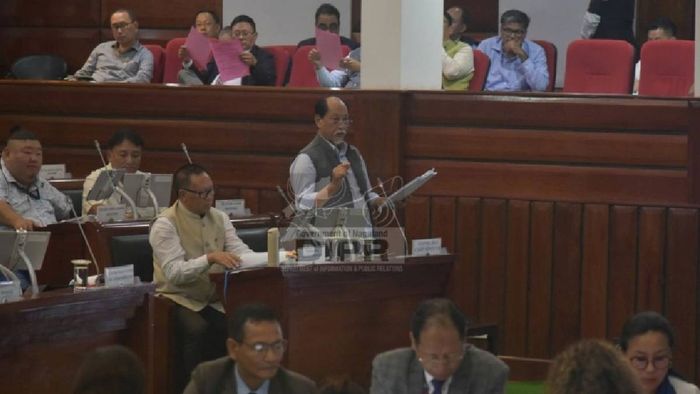Nagaland CM: Decision on changing liquor prohibition law after talks with churches, others
During the first day of the monsoon session in the state assembly, the focus was on the NLTP Act of 1989, which was originally enacted to curb alcohol-related social issues such as domestic violence and public disorder.

- Aug 28, 2024,
- Updated Aug 28, 2024, 9:52 AM IST
Nagaland Chief Minister Neiphiu Rio said that his government will deliberate on possible amendments to the three-decade-old Nagaland Liquor Total Prohibition (NLTP) Act after extensive consultations with civil society groups, the public, and church organizations.
During the first day of the monsoon session in the state assembly, the focus was on the NLTP Act of 1989, which was originally enacted to curb alcohol-related social issues such as domestic violence and public disorder. The discussion, initiated by Advisor Moatoshi Longkumer and supported by Minister Temjen Imna Along and Advisor Dr. Kekhrielhoulie Yhome, addressed the ongoing health hazards posed by spurious liquor, which has become widely available despite the prohibition.
Several assembly members highlighted the Act's failure to effectively regulate liquor distribution, noting that illicit alcohol is prevalent even in areas near the Assam-Nagaland border. They suggested that the state might consider partially lifting the prohibition in certain areas while implementing stringent controls.
Conversely, a faction of members opposed revising the Act, emphasizing that the government's approach should align with the sentiments of church bodies and tribal organizations, given Nagaland's Christian majority.
Chief Minister Rio acknowledged the Act's original intent and its mixed results over the years. He noted that while the prohibition has had some success in rural areas, urban regions have seen significant challenges, including the growth of black markets and criminal activity related to alcohol.
Rio underscored that while the government can regulate liquor sales, it cannot entirely control personal drinking choices. He stressed the need for a collective effort from all community sectors to address the issues stemming from the prohibition.
The state government is expected to continue its discussions and consultations before making a final decision on potential amendments to the NLTP Act.